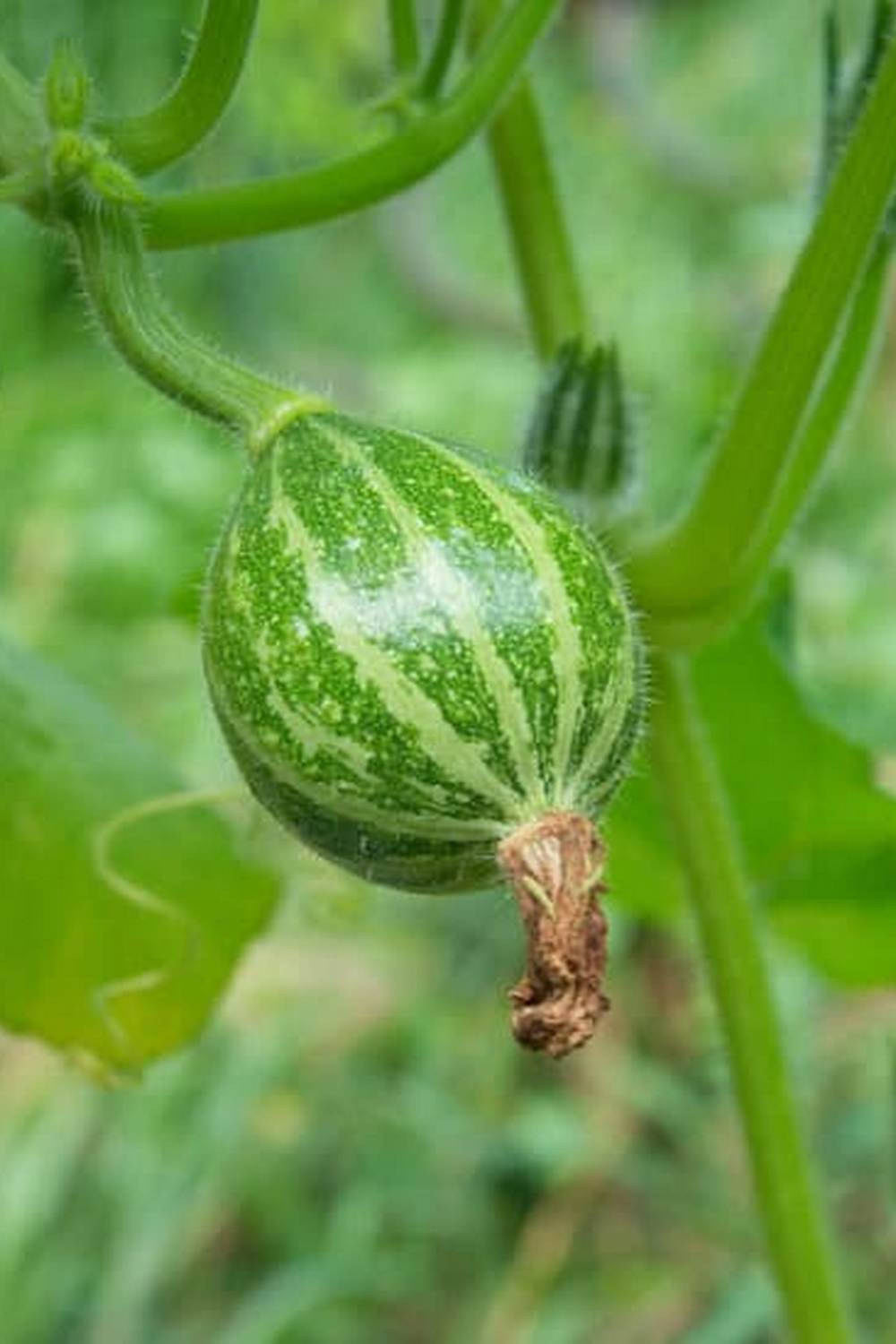Coffee grounds are a popular and accessible resource for many gardeners, but the question remains: do coffee grounds help vegetable gardens? When used correctly, coffee grounds can indeed be a beneficial addition to your gardening routine. Not only do they provide nutrients that can benefit your plants, but they can also aid in improving soil structure and water retention.
Many gardeners have found that incorporating coffee grounds into their vegetable gardens can lead to healthier plants and increased yields. The organic matter in coffee grounds helps to enrich the soil, providing essential nutrients such as nitrogen, potassium, and phosphorus. Additionally, the acidity of coffee grounds can be advantageous for certain acid-loving plants like tomatoes, peppers, and blueberries.
To properly prepare coffee grounds for gardening, it is important to ensure that they are composted or aged before application. Fresh coffee grounds can be too acidic and may repel earthworms if not properly broken down. By composting the coffee grounds with other organic material, you can create a nutrient-rich fertilizer that will benefit your vegetable garden without harming your plants.
Benefits of Using Coffee Grounds in Vegetable Gardens
When it comes to organic gardening, utilizing coffee grounds can offer a multitude of benefits for your vegetable garden. Not only are coffee grounds a rich source of nitrogen, but they also contain essential minerals such as potassium and phosphorus, which are vital for the healthy growth of plants. These nutrients aid in promoting strong root development, vibrant foliage, and bountiful harvests.
In addition to providing essential nutrients, coffee grounds also help improve soil structure by enhancing its drainage and water retention capabilities. This is particularly beneficial for vegetable plants that require well-draining soil to thrive. By adding coffee grounds to your garden beds, you can create a favorable environment for the roots to access water and nutrients more effectively, leading to healthier and more resilient plants.
Furthermore, coffee grounds act as a natural deterrent against common garden pests like slugs, snails, and ants due to their abrasive texture and strong scent. This can help protect your precious vegetable crops from unwanted damage without the need for harsh chemicals. When used strategically in your gardening routine, coffee grounds can contribute to a thriving vegetable garden that is not only productive but also environmentally friendly.
How to Properly Prepare Coffee Grounds for Gardening
Using coffee grounds in vegetable gardens can be a beneficial and cost-effective way to improve the health of your plants. When properly prepared, coffee grounds can provide essential nutrients to your vegetables while also helping to suppress weeds and pests. Here are some steps on how to prepare coffee grounds for gardening:
1. Collecting Coffee Grounds: Start by collecting used coffee grounds from your daily brew or local cafes. It is important to make sure that the coffee grounds you collect are not mixed with any non-compostable materials such as plastic or metal.
2. Composting Coffee Grounds: To ensure that the coffee grounds are properly broken down and do not create a compacted layer in your soil, it is recommended to compost them first. Mix the coffee grounds with other organic materials such as grass clippings, leaves, or kitchen scraps in a compost bin.
3. Balancing pH Levels: Coffee grounds are slightly acidic, so it is important to monitor the pH levels of your soil if you are using them regularly in your vegetable garden. Consider incorporating lime or wood ash to balance out the acidity and maintain the optimal pH level for your crops.
By following these steps, you can effectively prepare coffee grounds for gardening and maximize their benefits for your vegetable garden. Remember that moderation is key when using coffee grounds, as excessive amounts can potentially harm your plants rather than help them.
Best Vegetables to Grow With Coffee Grounds
Using coffee grounds in vegetable gardens can provide numerous benefits to your plants, soil, and overall gardening experience. When properly prepared and incorporated into your gardening routine, coffee grounds can help improve soil structure, provide essential nutrients, and even deter pests. Here are some of the best vegetables to grow with coffee grounds:
- Tomatoes: Coffee grounds are rich in nitrogen, which is essential for plant growth. Tomatoes thrive in nitrogen-rich soil and can benefit greatly from the addition of coffee grounds.
- Peppers: Peppers also require a good amount of nitrogen to produce healthy fruits. Incorporating coffee grounds into the soil for pepper plants can help boost their growth and productivity.
- Squash: Squash plants appreciate well-draining soil with a good nutrient balance. Coffee grounds can help improve the texture of the soil while providing a slow-release source of nutrients for squash plants.
Additionally, root vegetables like carrots and radishes can also benefit from the use of coffee grounds in the garden. These vegetables require loose, well-aerated soil to develop properly, and coffee grounds can help create an ideal growing environment for them.
When using coffee grounds in your vegetable garden, it is important to properly prepare them to prevent any potential issues with acidity or mold development. Mixing coffee grounds with compost or spreading them thinly over the soil surface allows for a gradual release of nutrients without causing harm to your plants. Remember not to overwhelm your garden with too many coffee grounds at once; moderation is key when incorporating this organic material into your gardening routine.
Overall, experimenting with using coffee grounds in your vegetable garden can lead to improved plant health, higher yields, and a more sustainable approach to gardening. By choosing the right vegetables that benefit most from the addition of coffee grounds and following proper guidelines for their use, you can optimize the advantages that this natural fertilizer offers to your garden.
Tips for Effectively Incorporating Coffee Grounds Into Your Gardening Routine
Proper Application Techniques
When it comes to incorporating coffee grounds into your vegetable garden, it is essential to do so correctly to reap the maximum benefits. One important tip is to avoid using coffee grounds directly as mulch around your plants, as they can form a water-repellent layer when compacted.
Instead, mix the coffee grounds with other organic materials like compost or leaf mold before applying them to the soil. This will help prevent any negative effects on plant growth and soil health.
Composting Coffee Grounds
Another effective way to utilize coffee grounds in your vegetable garden is by adding them to your compost pile. Coffee grounds are a great source of nitrogen, which can help speed up the decomposition process and enrich your compost with essential nutrients.
Make sure to balance out the carbon-to-nitrogen ratio in your compost by adding brown materials like dried leaves or straw along with the coffee grounds. This will create a nutrient-rich compost that your vegetables will love.
Monitoring pH Levels
One important aspect of incorporating coffee grounds into your gardening routine is monitoring the pH levels of your soil. While coffee grounds are slightly acidic, over time they can actually neutralize and even raise the pH of soil due to their composition.
To prevent any issues with acidity levels, regularly test the pH of your soil and adjust accordingly by adding lime if necessary. By keeping a close eye on pH levels, you can ensure that your vegetables thrive with the help of coffee grounds in your garden.
Common Misconceptions About Using Coffee Grounds in Vegetable Gardens
Coffee Grounds Acidify the Soil Too Much
One common misconception about using coffee grounds in vegetable gardens is that they will drastically increase the acidity of the soil. While it is true that coffee grounds are slightly acidic, they actually have a very neutral pH level when used in moderation. In fact, adding coffee grounds can help create a more balanced pH level in the soil, which is beneficial for many vegetables.
Coffee Grounds Attract Pests and Animals
Another misconception is that using coffee grounds in vegetable gardens will attract pests and animals. While it is true that some critters may be attracted to the smell of coffee grounds, properly incorporating them into the garden can mitigate this issue. Mixing the coffee grounds into the soil or combining them with other organic matter can help reduce any potential attractants for unwanted visitors.
Coffee Grounds Can Burn Plants
Some gardeners worry that using coffee grounds directly on plants will lead to burning due to their high nitrogen content. However, when coffee grounds are properly prepared and applied in moderation, they should not cause any harm to your vegetables. Mixing them into compost or spreading them thinly around plants can ensure a slow release of nutrients without damaging your crops.
Expert Advice on Maximizing the Benefits of Coffee Grounds in Gardening
Using coffee grounds in vegetable gardens can provide numerous benefits to the overall health and productivity of your plants. One of the key advantages is that coffee grounds act as a natural fertilizer, providing essential nutrients such as nitrogen, potassium, and phosphorus to the soil.
This can help promote robust growth, vibrant foliage, and higher yields in your vegetable garden. Additionally, coffee grounds have been found to improve soil structure and enhance its water retention capacity, which is crucial for healthy plant development.
To maximize the benefits of using coffee grounds in gardening, it is important to properly prepare them before adding them to your soil. Experts recommend composting or aging the coffee grounds for a few weeks to allow them to break down and reduce their acidity levels.
This process helps prevent any potential harm to sensitive plants and ensures that the nutrients are readily available for absorption by your vegetables. Another tip is to mix the coffee grounds with other organic matter like kitchen scraps or grass clippings to create a well-balanced compost that will nourish your garden.
When incorporating coffee grounds into your gardening routine, it is essential to use them in moderation. While coffee grounds can be beneficial for most vegetables, some plants may be sensitive to their high nitrogen content.
It’s advisable to start with a small amount of coffee grounds and gradually increase the dosage as needed based on how your plants respond. By following expert advice and being mindful of how you use coffee grounds in your vegetable garden, you can enjoy healthier plants and bountiful harvests throughout the growing season.
| Benefit | Explanation |
|---|---|
| Natural Fertilizer | Coffee grounds provide essential nutrients like nitrogen, potassium, and phosphorus to promote plant growth. |
| Improves Soil Structure | Coffee grounds enhance soil structure and water retention capacity for healthier plant development. |
| Moderation is Key | Start with small amounts of coffee grounds and adjust based on plant response to avoid over-fertilization. |
Potential Risks and Drawbacks of Utilizing Coffee Grounds in Vegetable Gardens
Using coffee grounds in vegetable gardens can be highly beneficial, but it is important to also consider the potential risks and drawbacks associated with their use. One of the main concerns is that coffee grounds are acidic in nature, which may not be suitable for all plants.
While some vegetables like tomatoes, peppers, and potatoes thrive in acidic soil, others such as lettuce and spinach prefer a more neutral pH level. It is essential to monitor the acidity of your soil regularly when using coffee grounds to ensure that it does not become too acidic for certain crops.
Another drawback of utilizing coffee grounds in vegetable gardens is the risk of mold growth. Coffee grounds are organic matter that can attract mold if not properly managed. To prevent mold growth, it is recommended to mix the coffee grounds with other compost materials and ensure proper aeration in your compost pile. Additionally, avoid using coffee grounds excessively in one area of your garden, as this can create a dense layer that restricts air circulation and promotes mold formation.
Furthermore, some gardeners have reported issues with pests being attracted to coffee grounds in their vegetable gardens. Ants and snails are particularly drawn to the scent of coffee, which could result in infestations if not addressed promptly.
To mitigate this risk, consider incorporating natural pest control methods or using barriers like diatomaceous earth around your garden beds. Overall, while there are potential risks and drawbacks associated with using coffee grounds in vegetable gardens, they can be effectively managed with proper precautions and monitoring.
| Concerns | Prevention |
|---|---|
| Acidic nature of coffee grounds | Regularly monitor soil acidity levels; mix with other compost materials |
| Mold growth | Mix with other compost materials; ensure proper aeration |
| Pest attraction | Use natural pest control methods; create barriers around garden beds |
Real-Life Success Stories of Gardeners Who Swear by Using Coffee Grounds
Many gardeners have attested to the positive impact of using coffee grounds in their vegetable gardens. These real-life success stories serve as proof of the benefits that this often-overlooked resource can bring to your gardening practices. From improved soil quality to enhanced plant growth, the experiences shared by these enthusiasts highlight the potential of incorporating coffee grounds into your gardening routine.
One gardener reported significant improvements in the yield and overall health of their vegetable plants after regularly adding coffee grounds to their soil. The nitrogen-rich composition of coffee grounds helped foster a robust growing environment, resulting in healthier and more productive crops. Another enthusiast shared how coffee grounds effectively deterred pests such as slugs and snails, providing a natural way to protect their vegetables without resorting to harmful chemicals.
These success stories underscore the versatility and effectiveness of using coffee grounds in vegetable gardens. By following proper preparation techniques and integrating them strategically into your gardening practices, you too can experience the myriad benefits that coffee grounds offer. Whether you are looking to enhance soil fertility, repel pests, or simply experiment with sustainable gardening methods, incorporating coffee grounds may just be the key to unlocking a thriving vegetable garden.
Frequently Asked Questions
What Veggies Benefit From Coffee Grounds?
Coffee grounds can benefit veggies like tomatoes, peppers, carrots, and radishes due to their acidity and nutrient content. They help improve soil structure and attract earthworms, leading to healthier plants.
What Vegetables Do Not Like Coffee Grounds?
Some vegetables do not respond well to coffee grounds, such as beans and peas which prefer a more neutral pH level. Root crops like potatoes may also be negatively affected by the caffeine content in coffee grounds.
How Often Should You Put Coffee Grounds on Your Vegetable Garden?
It is recommended to use coffee grounds on your vegetable garden sparingly and not too frequently. You can sprinkle them around once every few weeks or so as a mulch or mix them into the soil during planting to avoid overwhelming the plants with too much caffeine or altering the soil pH too significantly.

If you’re looking to get into vegetable gardening, or are just looking for some tips on how to make your current garden better, then you’ve come to the right place! My name is Ethel and I have been gardening for years. In this blog, I’m going to share with you some of my best tips on how to create a successful vegetable garden.





